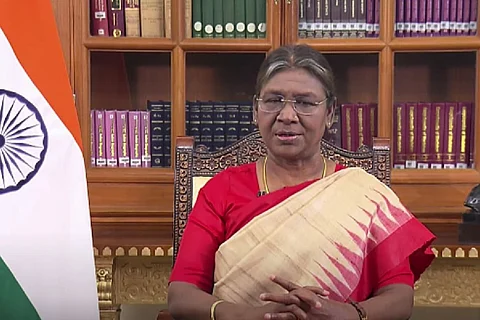

The three criminal law bills – Bharatiya Nyaya (Second) Sanhita (formerly Indian Penal Code), Bharatiya Nagrik Suraksha (Second) Sanhita (formerly Code of Criminal Procedure (CrPC)), and the Bharatiya Sakshya (Second) Sanhita (formerly Indian Evidence Act) – received assent from President Droupadi Murmu, on Monday, December 25. The bills were passed by the Lok Sabha on December 20 and Rajya Sabha on December 21, and have now become laws. The dates from which these Acts will come into effect will be notified by the Home Ministry. It is to be noted that the bills were passed after 49 MPs were suspended from both houses.
The bills have been passed amidst concerns that it might lead to excessive use of police force and pose a threat to human rights. Home Minister Amit Shah, while discussing the bills in the Parliament, said that through the new bills, “all signs of the shackles of our colonial past and of our slavery” will be eradicated. He also added, “I am proud to have piloted these bills that will replace these colonial-era laws. These are in line with our constitutional principles. For the first time, terrorism has been defined. So that no one can use loopholes.”
The Bharatiya Nyaya (Second) Sanhita currently has 358 sections; the Bharatiya Nagrik Suraksha (Second) Sanhita has 531 sections, and the Bharatiya Sakshya (Second) Sanhita has 170 sections. The bills were first introduced in the Parliament on August 11, following which a Parliamentary Standing Committee on Home Affairs gave many recommendations, including the retention of Section 377 to criminalise sexual offences against men and transgender individuals.
Read: New criminal law Bill omits Section 377: How this impacts men and trans persons
Under the Bharatiya Nyaya Sanhita (BNS2), sedition has been changed from 'Rajdroh' (against the government) to 'Deshdroh' (against the nation). Further, ‘organised crime’ has been added as an offence and it includes crimes such as kidnapping, extortion and cyber-crime committed on behalf of a crime syndicate.